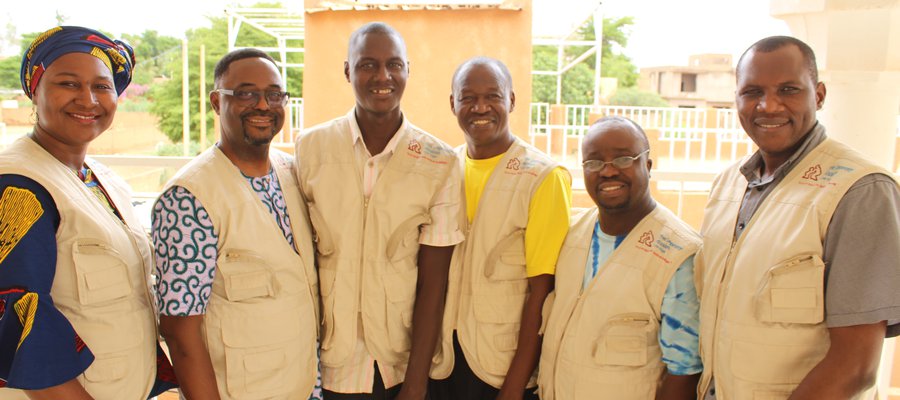Niger fact file: one of the world’s poorest countries

Niger is one of the poorest countries in the world
Niger is a landlocked country in West Africa, with a population of about 20 million, of which more than 97% are Muslim. It is a nation that suffers from multiple droughts and few arable areas, placing it among the poorest countries in the world.
Life expectancy is low, at 54 (CIA statistics), whilst infant mortality is high, with 25% of children likely to die before their 5th birthday. The risk of a woman dying from giving birth is 1 in 9. Niger is a country with a high proportion of young people, of whom 45% are under the age of 15. The literacy rate is also among the lowest in the world, with ratios ranging between 21% and 33%.
Poverty and extreme poverty rates are high, with 80% living on less than 2 euros per day. For even more vulnerable populations, such as people with disabilities or those suffering from debilitating diseases such as leprosy, poverty is chronic and even more dismal.
Although Niger Republic’s peace has been under threat due to some terrorist attack in the far north, and some insecurity and threats from neighbouring countries that border Niger in the East and West, (Nigeria, Chad, Mali, Libya) the communities and cities in the central still enjoy relative peace.
French is the official language of Niger. However, apart from the main languages, Hausa and Djerma, Fulfulde and Tamasheq, there are many other local languages. Only 30% of the general population speaks French (the majority of whom are based in the Nation’s capital – Niamey).
Leprosy in Niger
In 2018, there were 317 new cases of leprosy that were diagnosed in Niger, and 245 of these cases were MB leprosy, which is a more serious infection, which affects the nerves and is more likely to lead to disability.
These new cases are mostly from the endemic districts, where cases discovered were above the prevalence rate if compared to the population of those districts, meaning that leprosy still poses a challenge in the country.
Furthermore, 84% of new cases live far away from district health centres (more than 5km) and have difficulties in accessing the treatment that they need.
Because of this high rate of MB leprosy, it’s important that work is done to identify new cases of leprosy in Niger before they are able to spread further, which can lead to disabilities.
The Leprosy Mission in Niger
The Leprosy Mission has been working in Niger as an independent organisation since 2011. Lead by the Country Leader, Mr Bunmi Oluloto, we work across six regions (Maradi, Zinder, Touha, Dosso, Tilaberi, and Niamey). Our work is concentrated on providing leprosy awareness training, supervision of health workers, Community based rehabilitation and social economic development.
Empowerment in Niger
Our team in Niger works with IDEA, an association of people affected by leprosy. We work with them to provide advocacy training and empowerment. Our hope is that, through this training, people affected by leprosy will be able to talk with local governments and officials and secure their rights and entitlements.
Community Development in Niger
Our community development programmes in Niger are designed to make life better for people affected by leprosy in Niger. We provide opportunities for people affected by leprosy to receive micro credit or grants so that they can create a livelihood for themselves. We support adult literacy programmes, vocation training, and education for children of people affected by leprosy.
Our community development work also provides clean drinkable bore hole water, we build ventilated latrines in communities and promote hygiene. Our hope is that this area of our work will allow us to prevent water-borne diseases. There is also a housing project in Niger that caters for homeless people who are affected by leprosy.
The vision of our team in Niger is to see the lives of people affected by leprosy transformed through access to sustainable leprosy and community services.